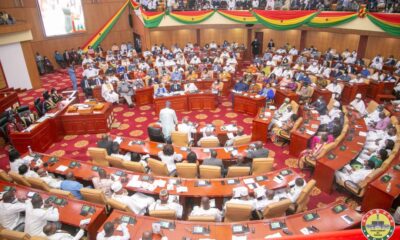President Nana Akufo-Addo of Ghana in his State of the Nation Address in parliament on Wednesday said the country will start producing its own COVID-19 vaccines by January 2024.
A National Vaccine Institute would be established to lay out a strategy for the West African country to begin the first phase of commercial production for the jabs, he said without providing further details.
“A bill will shortly be brought to you, in this House, for your support and approval for the establishment of the National Vaccine Institute,” he said.
The development comes after the President announced on Tuesday the opening of sea and land borders on Tuesday, 2 years after he announced the closure of borders to the West African country in the wake of the global pandemic – Covid-19.
The World Health Organization says Ghana has so far vaccinated over 14 million people with a single dose and over five million fully vaccinated – 16.3% of the population.
As a testimonial to its automotive development policy to encourage investment, president Akufo Addo announced that a new assembly plant with the capacity to assemble 5,000 new vehicles per annum has been established by Nissan in the eastern port city of Tema, which is currently producing Nissan and Peugeot brands of vehicles for the Ghanaian and West African markets.
The multinational, JAPAN Motors Trading Company (JMTC) had confirmed the president’s announcement in an earlier update on its official website. “…has been approved to begin producing the all-new ‘Built of More’ Nissan Navara at its brand-new, state-of-the-art assembly plant in Tema, outside the capital Accra”.
The new plant is different from the Navara production facility which is in Accra, the capital of Ghana, that is 100% Ghanaian operated by the Japan Motors Trading Company (JMTC), which invested the US $3 million into its construction, following Ghana’s drafting of its automotive development policy to encourage investment in the sector.
According to the World Bank, Ghana’s rapid growth was halted by the COVID-19 pandemic, the March 2020 lockdown, and a sharp decline in commodity exports. The economy had grown at an average of 7 percent in 2017-19, before experiencing a sharp contraction in the second and third quarters of 2020.
The economic slowdown had a considerable impact on households. The poverty rate is estimated to have slightly increased from 25 percent in 2019 to 25.5 percent in 2020.
With the recent wave of declarations Ghana’s economy is projected to recover gradually over the medium term, thanks to commodity price growth and strong domestic demand.

 Metro1 day ago
Metro1 day ago
 Metro1 day ago
Metro1 day ago
 Sports1 day ago
Sports1 day ago
 Culture1 day ago
Culture1 day ago



























